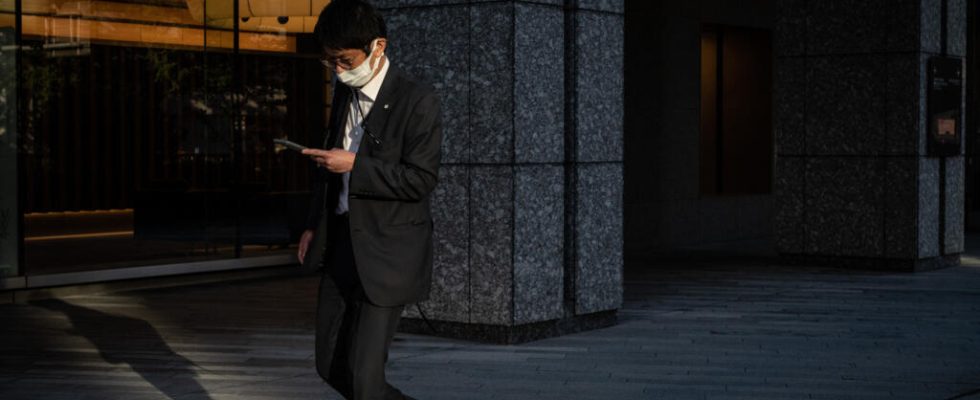Long working days, difficulty disconnecting… In Japan, where each year, 300 to 400 employees die from having worked too much, victims of burnout, Labor Day has a very special connotation.
With our correspondent in Tokyo, Bruno Duval
The working days of these Tokyoites never end. They spend an average of ten hours a day in the office and then, back home, are asked to remain reachable and responsive. “ I have no private life. Almost every evening, colleagues call me because they cannot find this or that document, need information on this or that file, etc. “says a worker.
“ My dream would be to be able to pick up when I get home : stop thinking about work until the next day, clear my head completely. But hey, it’s a dream “Laments another Tokyoite.
“ I answer text messages from my boss, including when I’m bathing my baby. I do not have a choice “explains a young mother for her part.
Higher quality work after disconnecting
No longer supporting such a corporate culture, this executive decided to leave his employer, a large Japanese company. He now works for an American group and is happy about it every day. “ Since I spend evenings and weekends disconnected, therefore relaxed, I work much better. I am at the same time more productive, more creative and better focusedpoints to the frame. There is no secret : it’s because I’m less nervously tired. »
But a majority of Japanese do not enjoy such a privilege. Because the right to disconnect is generally not appropriate in small and medium-sized companies. However, they employ more than seven out of ten employees.
► To read also: International report – Japan: the hell of people employed on minimum wage
